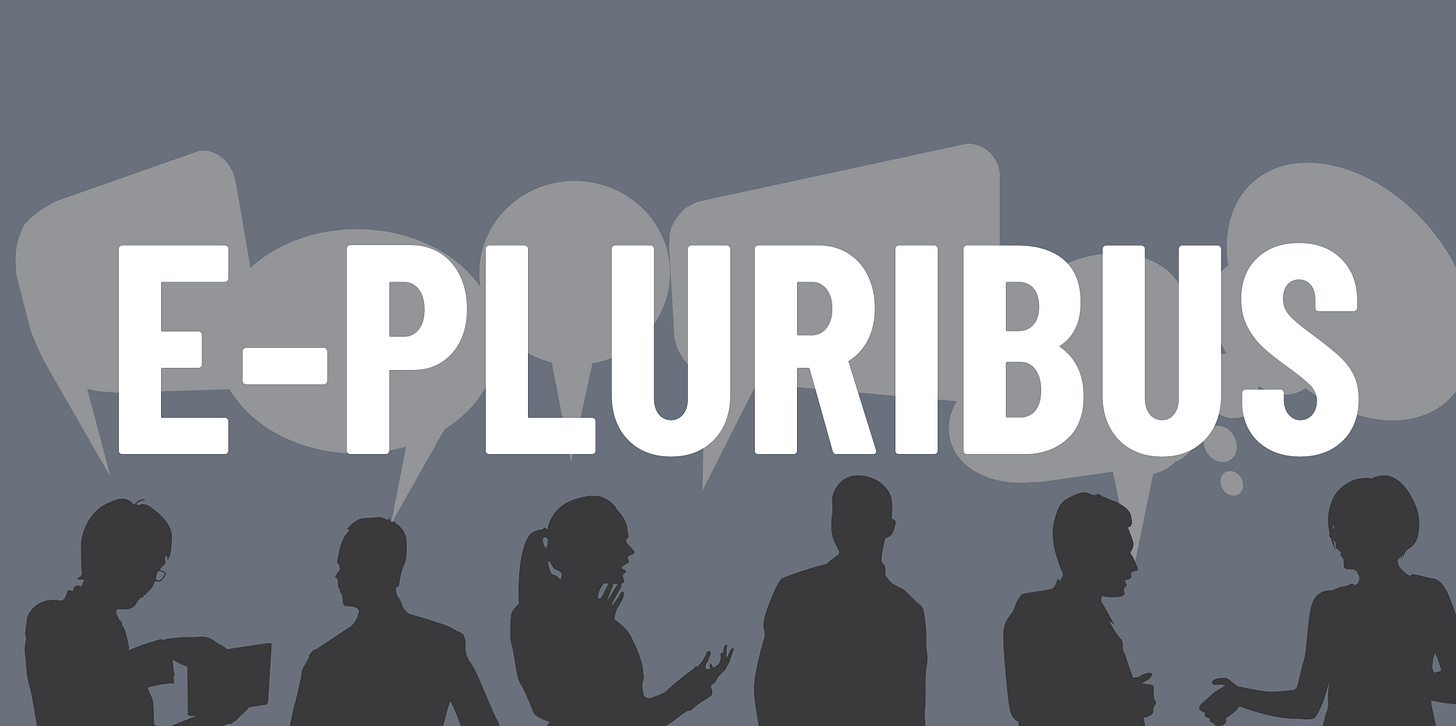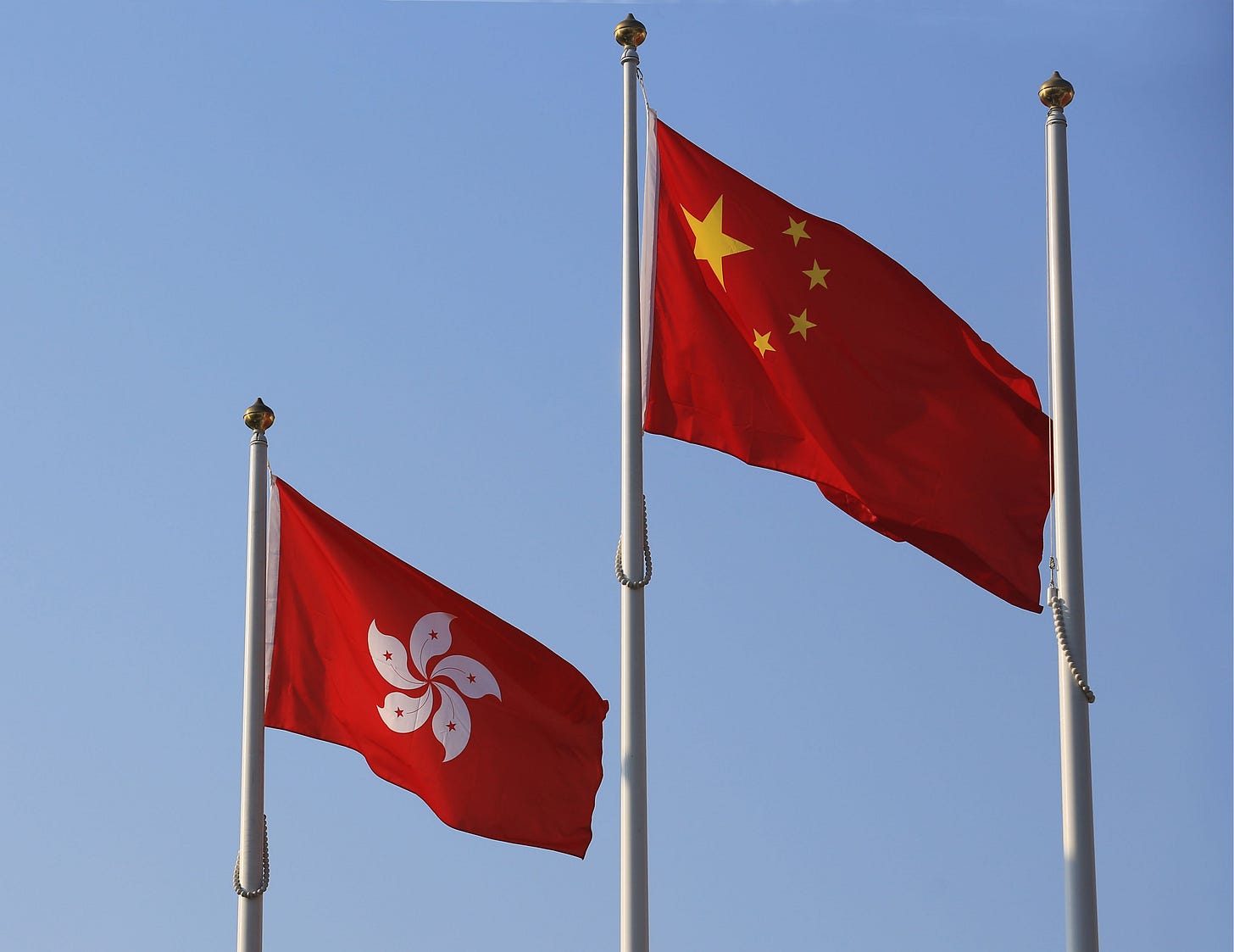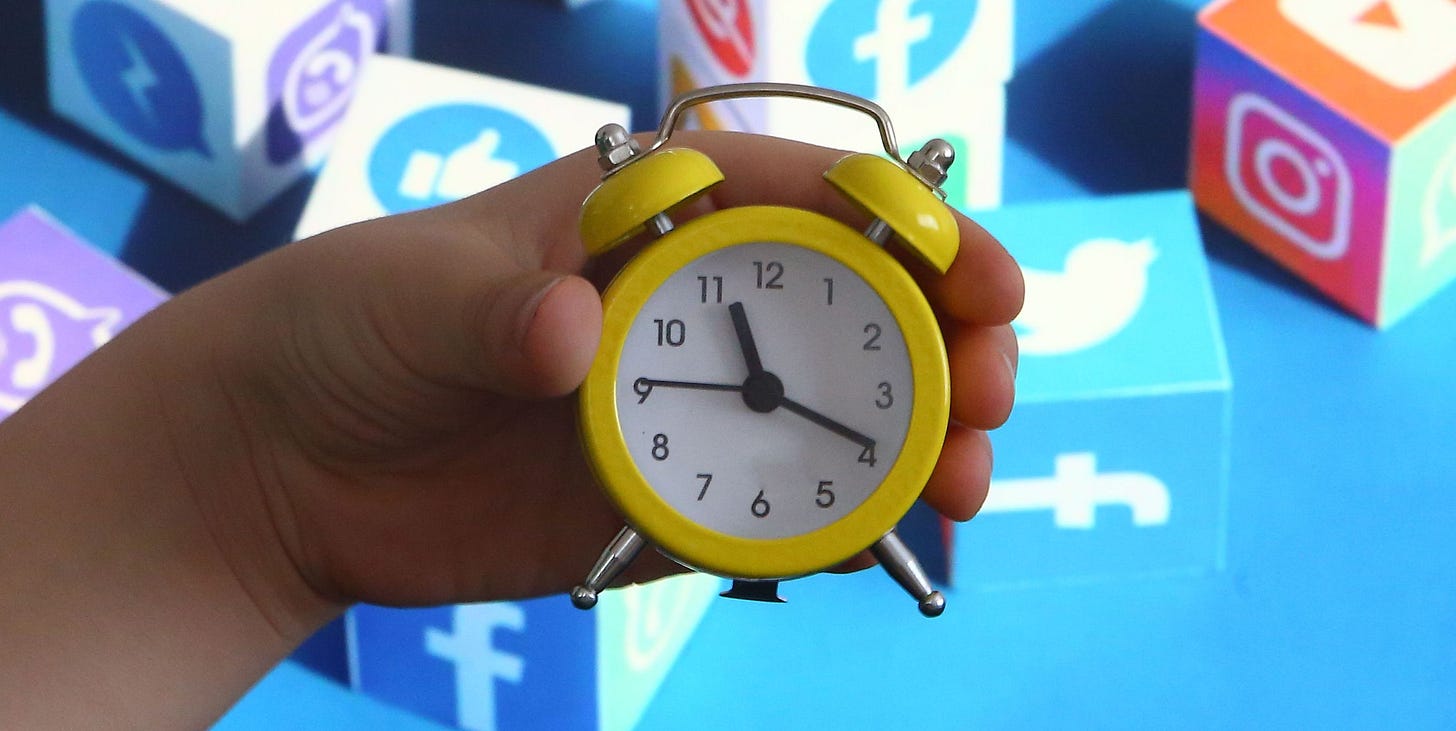E-Pluribus | December 13, 2022
Timeless principles; standing up for Hong Kong; and living on Twitter Time.
A round-up of the latest and best writing and musings on the rise of illiberalism in the public discourse:
Robert Pondiscio: Times Change, Principles Endure
Bill Bennett’s The Book of Virtues came out 30 years ago and, while the author’s support of Donald Trump caused some to question his own commitment to the book’s thesis, the virtues themselves remain unscathed. Robert Pondiscio at City Journal takes a look at what is new (and what is old) in the new edition of The Book of Virtues.
Nearly one-third of the selections in the 30th anniversary edition are new, including entries about Mother Teresa, Jaime Escalante, and Navy Seal Michael Murphy, a posthumous Medal of Honor recipient who died saving his comrades in Afghanistan. No thought was given to updating the list of virtues themselves, however. “You know, people are honest or they are not. They believe in the value of work or they don’t,” Bennett remarked when I spoke with him recently. “C.S. Lewis said you could no more invent a new virtue than a new color.”
True, but some are more in season than others. Bennett took rueful note of changing attitudes about work, one of the book’s ten virtues, and the millions of American men in their prime years who are forgoing meaningful work, their lives consumed by screen time and, in too many cases, opioid abuse. “The person who has missed the pleasures of work, of a job well done, has missed one of the great pleasures of life. Hard work can be done by people on the left or on the right,” Bennett said, noting that even 30 years ago some critics carped that he had produced a book of conservative virtues. “There was a book of liberal virtues,” he said. “It didn’t sell.”
The 1990s were no less obsessed with “multiculturalism” than readers today are with “identity.” Both the original Book of Virtues and the revised edition stand up well to the demands of diversity, with entries by and about Martin Luther King, Harriet Tubman, James Baldwin, and others, and folktales from many traditions. This will likely not be sufficient to appease present-day readers less concerned with which authors are included than with which ones are cancelled and purged. Perhaps Bennett and his wife and co-editor Elayne might yet be persuaded to add one more virtue in future editions: tolerance.
Read it all here.
Wall Street Journal Editorial Board: Google Takes a Stand Over Hong Kong’s Protest Anthem
Large multinational corporations are infamous for kowtowing to authoritarian regimes to avoid potential economic fallout. The editorial board of the Wall Street Journal, however, gives credit where credit is due to Google for not knuckling under to pressure from the Chinese Communist Party regarding Hong Kong’s national anthem.
The Hong Kong government wanted the company to ensure that search results display the Chinese national anthem first, but Google has declined to do so. “We can definitely tell them what should be put at the top and what should be buried. There are ways to achieve that,” Hong Kong Chief Secretary Eric Chan Kwok-ki told the Hong Kong News Executives Association in late November.
Yes, it’s called rigging the results to serve government commands, and when Google refused, Hong Kong Security Secretary Chris Tang called the company’s response, “unacceptable and unbelievable,” according to reporting by the Standard. He added that the government would use “every means to correct the mistake.
Censorship is always Plan A in China, but its arrival in once-free Hong Kong is still jarring. In 2019 the Hong Kong government required students to sing the Chinese anthem in public schools, and by 2020 Hong Kong’s legislature passed a bill making disrespect of the Chinese national anthem punishable by up to three years in jail.
[ . . . ]
China routinely scrubs politically inconvenient stories off Internet and social media, and Hong Kong police opened a probe into recent anthem confusion at a South Korea rugby match where the Hong Kong protest song was mistakenly played instead of China’s anthem. But some Western media are beyond Beijing’s reach. Google pulled its search engine from China in 2010 but it is still available in Hong Kong.
American companies haven’t always stood on principle against Beijing’s censors. Cringe-worthy moments by the NBA and Marriott come to mind. But the Communist Party’s attempts to enforce its surveillance and censorship are raising the political costs of doing business in China.
Read it all.
Jenny Odell: What Twitter Does to Our Sense of Time
In the New York Times, author Jenny Odell explores what social media (and Twitter in particular) can do to our sense of time with its relentless mission to put new information in front of us 24/7 (if we let it). Odell relates her own experience with staunching the information geyser and choosing to be in charge of her own information consumption rather than allowing it to take charge of her.
Something like entrainment [“the alignment of an organism’s physiology or behavior with a cycle”] seems to be at work in our relationship to Twitter and other forms of social media. The rate of updates and notifications provides a powerful zeitgeber — one that can even override our circadian rhythm, as any nighttime scroller knows. I first became aware of the depth of my entrainment after the 2016 election and again at the beginning of the pandemic. It seemed that the more I used these platforms, the more I got psychologically adjusted to a certain social frame rate — one that happened to be ticking by with constant developments and quickly evolving outrage. It was as if opening my phone revealed a stream of time running much faster than the one in the room where I sat.
The resulting shift in my sense of time had a range of effects. I found it harder to pay attention to other events and processes that took longer or played out less sensationally even if I cared about them — like the local effects of climate change, grass-roots housing campaigns or even just the details of friends’ lives. I felt like my thoughts were running on shorter loops or never getting completed. Even my breaths were short, as though a full inhale couldn’t fit into such tiny intervals, and my joints would ache from a state of constant anticipation. It was the feeling of a furrowed brow, applied to my entire body. Most haunting was a sense that I had no substance, and that the physical world, with all its minute fluctuations and gradual changes, was somehow losing its color and texture.
In the past few years, in part because of how frayed my mind felt, I started avoiding my Twitter and Instagram feeds altogether. From this remove, I sat down and wrote out on paper what it was that I really wanted from these platforms. The answer ended up being a sense of recognition among peers, connection to people with shared interests and whose work I admire and the ability to encounter new, unexpected ideas. As opposed to algorithms, I wanted these new things to be recommended by individuals who had reasons to like them, like the weekly set on my local college radio station by a D.J. whose wide-ranging taste I’m at pains to describe, but reliably enjoy. Really, I think I just wanted everything to have a little more context.
Read the whole thing.
Around Twitter
Persuasion, with an assist from David French, with a nothing-new-under-the-sun observation about the Twitter Files:
Elon Musk loves to engage in his hobby of aphorizing on Twitter. Here’s his latest with an eclectic selection of comments:
And finally, if you can’t rely on the Cambridge Dictionary for the definitive answer to that months-old question, “What is a woman?,” who can you rely on?










